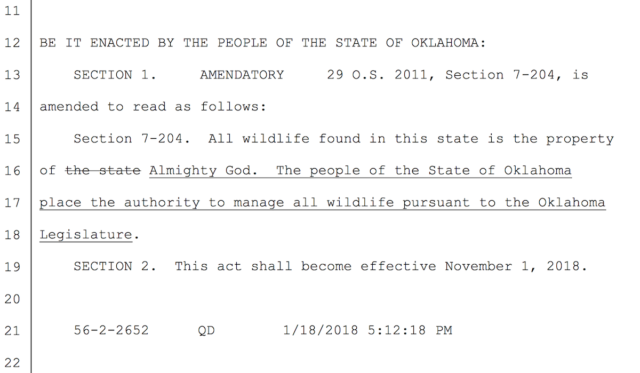
The Oklahoma Legislature has filed 1,953 bills for the 2018 regular session. Gov. Mary Fallin also has expanded the scope of the state’s current special session, which started in December and could pull lawmakers back into meetings before the Feb. 5 scheduled date for the start of regular session.
Confusing much? Well, at least Oklahoma’s state government isn’t shut down, whatever that means. (It actually means a lot.)
While Oklahoma still lacks a balanced budget for its current 2017-2018 fiscal year — as required by the state constitution — Fallin is pushing lawmakers to consider elements of the Step Up Oklahoma new-revenue and reform proposal as soon as possible.
Since a new governor will be elected in November, the next four months of legislative action will largely write the final chapter of Fallin’s gubernatorial story.
In her expanded special session call, Fallin directed the Legislature to “provide a long-term revenue solution to the state’s budget shortfalls by”:
- increasing the tax on cigarettes, and little cigars by $1.50 per pack. An additional 10 percent on chewing tobacco and e-cigarettes;
- increasing the oil and gas gross production tax by increasing the rate on wells currently at 2 percent to 4 percent and all future wells will begin at 4 percent for 36 months and move to 7 percent thereafter;
- implementing a Renewables Generation Tax at $1 per MWH;
- increasing the rate on diesel and gasoline by $0.06 per gallon;
- imposing a dollar cap on transferability/cash refundability for coal, wind and railroad tax credits effective the 2018 tax year;
- expanding the definition of covered games in the Model Tribal Gaming Compact to include “non-house banked table games;”
- and reforming rates, exemptions, deductions and credits on the individual income tax code.
The governor also asked the Legislature to:
- create an accountability office designed to expose waste, fraud and abuse of taxpayers’ dollars in state government;
- modify the structure of state government and increase accountability by replacing the appointing power of specified boards and commissions with granting the governor direct appointing authority over these specified agency directors (This can be accomplished by statutory change or by referring a Constitutional change to a vote of the people when necessary.);
- and address a needed $5,000 pay increase for certified education staff, excluding any superintendents.
Castrating God’s creatures?
While the above instructions highlight the serious work ahead for lawmakers, legislators have managed to file a few bizarre measures that have brought giggles and shock to the public (This happens every year.)
Chief among them, SB 1457 by Sen. Nathan Dahm (R-Broken Arrow) would modify statute to say all wildlife found in Oklahoma is the property of “Almighty God,” instead of “the state” as the law currently reads. It then says the people of Oklahoma place the authority to manage said wildlife in the hands of the Legislature (see actual screenshot above).
Functionally, the bill does nothing and stands as an example of political pandering from a lawmaker running for Congress.
Other measures filed, however, would cause major, questionable changes.
HB 2543 by Rep. Rick West (R-Heavener) would institute chemical castration as a potential condition for release from incarceration for anyone convicted of a “sexually violent offense.” West’s proposal would attempt to avoid running afoul of Skinner v. Oklahoma, a 1942 U.S. Supreme Court decision that prohibited chemical castration as a punishment for crimes on the basis that it violates the equal protection clause. Although criminal sexual behavior is an epidemic that wrecks countless lives, West’s bill follows in the footsteps of a similar 2015 proposal that failed an Oklahoma Senate committee.
With 2018 an election year, Oklahomans are likely to see these and other measures filed to garner headlines.
But lawmakers — and legislative leaders in particular — should remember what polls show as the issues most concerning to the public. That would be the state budget, teacher pay and government efficiency.
Wandering down the distracting holes of Almighty God’s rabbits should be avoided.





















